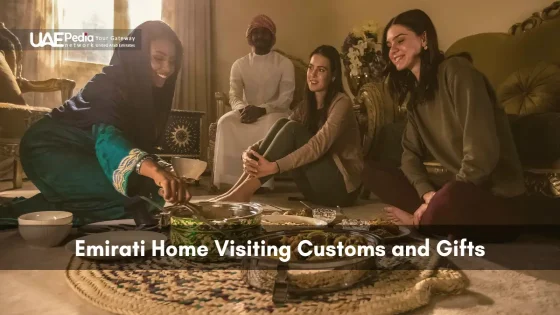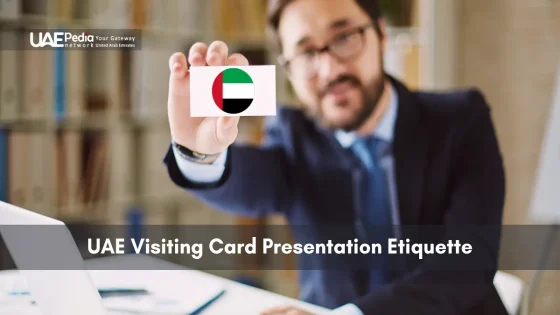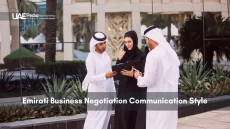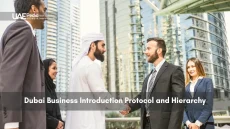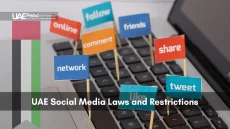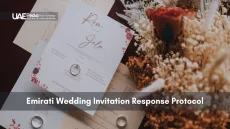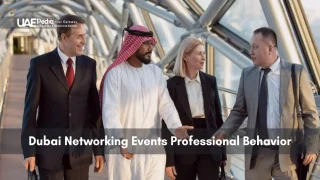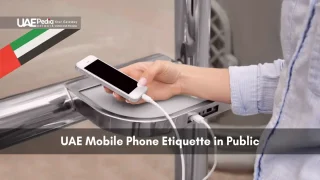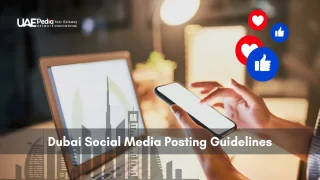What if everything you knew about preparing for professional discussions needed rewiring? In the United Arab Emirates, where golden skyscrapers meet desert traditions, the rhythm of collaboration dances to its own beat.
Here, a handshake carries the weight of trust-building, and the majlis—a space designed for dialogue—shapes how teams align priorities. While global practices influence strategies, local customs anchor decisions. This fusion creates a unique ecosystem where patience isn’t just polite—it’s strategic.
Navigating these dynamics requires more than a checklist. You’ll discover how respect for hierarchy weaves into modern workflows, why coffee rituals matter as much as timelines, and how major companies balance innovation with cultural roots. We’ve packed this guide with insights from Emirati corporate leaders and actionable steps to help you thrive.
In this section:
- Why cultural awareness defines professional success here
- Core differences between regional and global collaboration styles
- Practical strategies to build trust and achieve goals
Navigating the uae business meeting agenda expectations
In a land where heritage meets innovation, professional gatherings are more than checklists—they’re cultural tapestries. Local traditions blend with global efficiency here, creating a rhythm that rewards those who listen first. Think less rigid timetables, more relationship-building woven into every handshake.
| Traditional Elements | Modern Adaptations |
|---|---|
| Opening with Arabic coffee rituals | Digital presentation tools |
| Storytelling to build context | Data-driven decision frameworks |
| Senior members steering dialogue | Cross-team collaboration models |
Notice how hierarchy shapes conversations? A Dubai-based CEO once shared: “We value partners who understand that respect flows both upward and sideways.” This means acknowledging seniority while encouraging junior voices through proper channels.
Language precision matters. Phrases like “Insha’Allah” (God willing) signal flexibility rather than vagueness. Misinterpret this, and you might miss critical nuances in timelines or commitments.
Three signs you’re nailing the balance:
- Discussions begin with personal inquiries before pivoting to metrics
- Agendas allow space for unexpected insights
- Decisions emerge through consensus, not rushed votes
Ready to transform observations into action? Our next sections unpack exactly how to prepare, adapt, and thrive in these dynamic exchanges.
The Role of Respect and Etiquette in UAE Business Meetings
Imagine stepping into a room where every gesture speaks volumes—where a smile holds more power than a PowerPoint slide. Here, cultural codes shape interactions long before agendas surface. Let’s unpack how subtle choices, from handshakes to casual chats, become bridges to collaboration.
Greeting Customs and Handshake Etiquette
First impressions here aren’t just polite—they’re foundational. The phrase “As-salamu alaykum” (peace be upon you) opens dialogues, often paired with a light handshake. But watch the details: senior figures appreciate titles like “Sheikh” or “Dr.”, and it’s customary to wait for women to extend their hand first. One hospitality executive shared: “A rushed greeting feels transactional. Pause, make eye contact—it shows you value the person, not just the deal.”
Building Trust Through Small Talk
Don’t mistake casual conversation for filler. Asking about family, local events, or even favorite Arabic coffee blends isn’t small talk—it’s social glue. These moments reveal shared values and create emotional footholds. A tech founder put it simply: “If you skip the ‘how’s your day’ part, we’ll wonder if you’re here for the long term.”
Three quick tips to remember:
- Greet the eldest or highest-ranking person first
- Keep handshakes gentle—no power grips
- Share a personal anecdote before diving into data
Respect isn’t a checkbox here—it’s the currency of trust. Master these nuances, and you’ll find doors opening faster than you can say “shukran” (thank you).
Cultural Norms, Islamic Values, and Business Practices
Picture this: the melodic call to prayer echoes through glass towers as professionals pause mid-conversation. This seamless blend of faith and commerce defines collaborative spaces here. Islamic principles don’t just inform traditions—they shape how teams connect, decide, and grow trust.
Observing Prayer and Religious Practices
Workflows bend around spiritual rhythms. Meetings often adjust for prayer times, with breaks scheduled for Dhuhur (noon) and Asr (afternoon) observances. During Ramadan, shorter hours and post-sunset gatherings become standard. A logistics manager shared: “We plan deadlines around Eid holidays—it shows we value our partners’ priorities.”
Three practical tips:
- Check prayer schedules when booking conference rooms
- Offer flexible timing during holy months
- Avoid lunch meetings in Ramadan—daytime fasting is common
Gender Sensitivity and Social Norms
While modern workplaces thrive here, cultural norms still influence interactions. Many women hold leadership roles, yet some prefer initial greetings with a nod rather than a handshake. Dress codes lean toward modesty—think tailored blazers over sleeveless tops.
Hierarchy matters. Junior team members often defer to seniors during debates. But don’t mistake this for rigidity. As one tech founder noted: “Respect the structure, then innovate within it.”
Key reminders:
- Address mixed groups with inclusive language
- Let local counterparts guide physical contact boundaries
- Celebrate cultural festivals—it builds rapport
Mastering these norms isn’t about memorizing rules. It’s about reading the room—and respecting the silent dialogues between tradition and progress.
Dress Code Essentials for UAE Business Settings
Your outfit speaks before you do—especially here. Whether you’re in a gleaming boardroom or a coastal innovation hub, clothing choices signal respect for local values. Let’s decode how to blend tradition with global professionalism.
Silhouettes That Bridge Cultures
Traditional garments like the crisp white dishdasha (ankle-length robe) and flowing abaya (cloak) remain staples. But Western styles thrive too—think tailored suits in neutral tones. A Dubai image consultant notes: “Pair a navy blazer with linen trousers. It’s polished yet breathable for our climate.”
| Traditional Elements | Modern Adaptations |
|---|---|
| Loose, flowing fabrics | Lightweight wool suits |
| Embroidery accents | Subtle patterned ties |
| Head coverings like ghutra | Structured fedoras |
Modesty as Your Secret Weapon
Shoulders covered? Check. Knee-length skirts? Perfect. Modesty isn’t restrictive here—it’s strategic. Avoid plunging necklines or sheer fabrics. One fashion director advises: “Choose sleeves that graze your elbows. It shows you’ve done your homework.”
Three quick wins for any wardrobe:
- Opt for closed-toe shoes over sandals
- Skip flashy logos—understated luxury wins
- Layer a blazer over dresses for versatility
Accessories matter too. A pearl necklace beats chunky gold chains, and light cologne trumps heavy perfumes. Need inspiration? Our holiday attire guide offers seasonal twists on these rules.
Remember: Dressing well here isn’t about losing your style—it’s about gaining trust through thoughtful details.
Scheduling and Timing: Work Hours, Meetings, and Ramadan Considerations
Time bends differently here—not slower or faster, but with intention. The week starts on Sunday, wrapping up by Thursday afternoon. Most offices clock eight-hour days, but you’ll find peak collaboration happens mid-morning after coffee rituals settle in.
Syncing With Local Calendars
Standard appointments often land between 9 AM and 4 PM. But come Ramadan? The tempo shifts. Workdays shrink to six hours, and prayer pauses punctuate afternoons. A logistics manager in Dubai shared: “We schedule critical reviews post-Iftar—energy levels rise when the sun dips.”
| Standard Period | Ramadan Adjustments |
|---|---|
| Meetings: 10 AM – 3 PM | Discussions: 7 PM – 10 PM |
| Five-day workweek | Four-day options in some sectors |
| Email replies within 24 hrs | Extended response windows |
Punctuality matters, but so does patience. Arrive early, yet leave room for tea-side chats that build rapport. Pro tip: Book morning slots during Eid holidays—teams often clear backlogs before celebrations.
Three ways to ace cultural timing:
- Cluster formal talks early in the week
- Save informal check-ins for Thursday mornings
- Align deadlines with lunar calendar events
Adaptability isn’t just polite—it’s strategic. As one Sharjah-based CEO noted: “The right hour can turn a ‘maybe’ into a ‘yes.’”
Effective Communication and Relationship Building
Words here carry layers—a greeting isn’t just hello, but a bridge to trust. Conversations are gardens where formal language waters roots, while genuine connection lets partnerships bloom. Let’s explore how polished phrases and personal touches create lasting alliances.
Formal Language and Courtesy
Start with titles—always. Addressing someone as “Sheikh Ahmed” or “Dr. Fatima” signals respect. A Dubai tech CEO shared: “We notice who takes time to learn proper honorifics. It shows commitment to our shared goals.” Even emails follow this code—subject lines mention roles, and sign-offs include “Best regards” rather than casual abbreviations.
| Formal Approach | Common Misstep |
|---|---|
| Using full names with titles | Nicknames without permission |
| Structured meeting agendas | Jumping straight into demands |
| Phrases like “With due respect” | Overly direct critiques |
Establishing Personal Connections
After formalities, pivot to shared interests. Ask about family milestones or local festivals—it’s not filler, it’s fuel for rapport. One logistics manager revealed: “A partner remembered my daughter’s graduation. That chat led to our longest contract.”
Three ways to deepen bonds:
- Reference previous conversations in follow-ups
- Share light personal stories before negotiations
- Send handwritten notes after major deals
Balance matters. A marketing director advised: “Mix 70% professionalism with 30% warmth. Too stiff? You’re a robot. Too casual? You’re not serious.” Track interactions with major companies—send article links related to their industry, or congratulate teams on milestones.
Remember: Every “shukran” (thank you) and attentive pause plants seeds for future collaboration. Nurture them, and watch trust grow.
Mastering Business Negotiations and Decision-Making
Think of a chess match where each move builds toward checkmate—not a sprint to the finish line. Here, conversations unfold like intricate mosaics, valuing consensus over quick wins. Emirati professionals often approach discussions with a blend of analytical rigor and cultural nuance, creating outcomes where everyone feels heard.
Patience and Strategic Discussion
Rushing to “close the deal” can backfire. One logistics executive explained: “We prefer partners who treat talks like shared journeys—not transactions.” This means framing proposals as collaborative possibilities rather than ultimatums. For example, suggesting price ranges instead of fixed numbers allows room for creative problem-solving.
| Direct Approach | Local Adaptation |
|---|---|
| “We need this by Friday” | “Would early next week suit your team’s workflow?” |
| Pushing for immediate answers | Offering time to consult colleagues |
| Win-lose bargaining | Phrases like “Let’s explore together” |
Non-verbal cues matter too. A prolonged silence might signal thoughtful consideration—not disinterest. Watch for subtle shifts in body language, like leaning forward during key points or adjusting ghutra headwear when pondering options.
Three ways to refine your strategy:
- Frame concessions as mutual gains
- Use phrases like “In your experience…” to invite insights
- Celebrate small agreements before tackling bigger ones
Here’s the twist: What feels indirect often leads to stronger commitments. As a Sharjah-based CEO noted: “When both sides shape the solution, compliance becomes effortless.” Adapt these techniques, and watch partnerships deepen with each discussion.
Integrating Corporate Social Responsibility into Business Strategy
Imagine solar panels shimmering beside desert dunes—not as eco-statement, but as strategic advantage. Across gleaming cities, ethical initiatives now fuel growth as much as oil reserves once did. Recent legislation requires large firms to allocate 2% of profits to CSR, blending obligation with opportunity.
Sustainable Practices and Ethical Initiatives
Leading organizations weave responsibility into daily operations. Retail giant Majid Al Futtaim runs zero-waste malls, while Etihad Airways trains pilots in carbon-neutral flight paths. A sustainability officer shared: “Our clean energy projects cut costs by 18% last year—proof that green choices boost both image and income.”
| Traditional CSR | Modern Strategy |
|---|---|
| Annual charity donations | Embedded sustainability teams |
| Employee volunteer days | AI-driven resource optimization |
| PR-focused campaigns | Transparent impact dashboards |
Three reasons this shift matters:
- Consumers now rank ethical practices above pricing for 63% of purchases
- Government tenders prioritize bidders with strong CSR track records
- Employee retention doubles when teams feel purpose-aligned
Business etiquette here extends beyond handshakes—it’s about building legacies. Companies like Emirates NBD prove this, turning mangrove conservation into client engagement programs. Their secret? Treating responsibility not as checkbox, but growth engine.
Final tip: Map your CSR goals to cultural values. Solar farms honor innovation traditions; youth training programs mirror community-first mindsets. Get this right, and watch trust—and profits—rise together.
Leveraging Networking and Social Practices for Success
Ever watched a falcon soar? In the Arab Emirates, connections glide on similar currents—effortless yet intentional. Professional relationships here thrive where structured events meet spontaneous exchanges. Think gallery openings where deals spark over saffron-infused tea, or tech summits blending AI debates with oud music interludes.
Industry Events and Informal Gatherings
Major conferences like GITEX Global draw global crowds, but real magic happens in after-hours majlis sessions. A Dubai venture capitalist shared: “Our best partnerships began at beachside barbecues, not boardrooms.” Balance formal agendas with cultural curiosity—ask about heritage crafts while discussing fintech trends.
| Traditional Networking | Modern Mixers |
|---|---|
| Family-hosted dinners | Co-working space meetups |
| Date palm plantation tours | VR startup demo days |
| Poetry recitation circles | Women-led founder pitch nights |
Utilizing Business Card Etiquette
Your card isn’t just contact info—it’s a first impression. Present it with your right hand, Arabic side facing up. Gold foil accents? Classy. QR codes? Even better. An Abu Dhabi PR director advised: “Never stuff cards in your back pocket. Keep them in a dedicated case—it shows respect for the exchange.”
Three rules to ace the code:
- Stand when exchanging cards—no seated handoffs
- Study received cards briefly before pocketing them
- Include Arabic/English translations for local clarity
Make sure to follow up within 48 hours. Reference a shared moment from your interaction—maybe that story about pearl diving or your mutual love for camel milk chocolate. These touches transform contacts into collaborators across the Arab Emirates.
Digital and Remote Work Opportunities in the Dynamic UAE Market
Where desert sands meet fiber-optic cables, the region’s work culture is rewriting its playbook. Over 67% of firms now blend office days with remote flexibility—a leap from pre-pandemic norms. This shift isn’t just about location—it’s redefining how teams collaborate across dunes and time zones.
Embracing Flexible Work Trends
Traditional 9-to-5 structures now share space with digital-first models. Take Dubai’s tech hub: startups use AI schedulers to sync global teams, while banks adopt hybrid rotations. A fintech CEO noted: “Our best coders log in from mountain cabins. Performance metrics? Up 22% since we ditched rigid desks.”
| Traditional Model | Modern Adaptation |
|---|---|
| Fixed office hours | Core hours + flexible slots |
| Local hires only | Global talent via nomad visas |
| Paper-based approvals | Blockchain workflow systems |
Government initiatives fuel this change. The four-day workweek pilots boosted productivity by 33% in trial sectors. Meanwhile, digital nomad visas attracted 12,000 professionals in 2023 alone—many launching ventures from beachside co-working spaces.
Three ways to thrive:
- Use cloud tools like Dukkan for Middle East-focused e-commerce
- Align schedules with cultural rhythms—avoid Friday deadlines
- Attend virtual majlis sessions to build regional networks
From Abu Dhabi’s fintech free zones to Ras Al Khaimah’s coding bootcamps, the United Arab Emirates proves innovation needs no fixed address. Adaptability, once a perk, is now the passport to progress.
Real-World Best Practices from Leading Emirati Companies
Behind every skyline-defining tower lies a blueprint of tradition meeting tech. Organizations across the United Arab Emirates are rewriting success stories by honoring heritage while chasing innovation. Let’s explore how industry giants turn cultural roots into competitive edges.
Case Studies and Success Stories
Take ADNOC, Abu Dhabi’s energy titan. They’ve trained 14,000 employees in cultural intelligence programs, blending Bedouin negotiation tactics with AI-driven supply chains. A senior manager shared: “Our drilling teams now start shifts with Arabic coffee rituals. It grounds us in shared values before tackling complex projects.”
| Traditional Approach | Modern Innovation |
|---|---|
| Family-led decision councils | Blockchain-enabled voting systems |
| Date farm partnerships | AI-optimized irrigation networks |
| Pearl diving heritage tours | VR marine conservation labs |
Emirates Global Aluminium offers another lesson. Their smelters near Abu Dhabi combine ancient metalworking techniques with carbon capture tech. A tour guide revealed: “We show investors 18th-century furnaces first—then our hydrogen-powered ones. It sparks conversations about sustainable progress.”
Three actionable lessons from these companies:
- Embed local narratives into global strategies
- Pair legacy skills with emerging tech talent
- Measure success through community impact
Mubadala Investment Company exemplifies this fusion. Their renewable energy arm sponsors solar farms shaped like falcon wings—symbols of Emirati pride. A project lead noted: “Every panel tells a story. That’s how you turn megawatts into meaningful connections.”
From pearl banks to fintech hubs, Abu Dhabi’s trailblazers prove that respecting the past fuels future-ready business culture. Their playbook? Listen to local wisdom, then reimagine it through tomorrow’s lens.
Final Reflections on Business Culture in the UAE
Sunset over Dubai Marina paints more than just a pretty view—it mirrors the blend of tradition and innovation shaping professional landscapes here. From tailored dress codes to consensus-driven dialogues, every choice whispers respect for cultural roots while embracing global momentum.
Successful companies thrive by weaving local practices into their core strategies. They honor prayer pauses, master the art of indirect negotiation, and recognize that relationship-building often happens over cardamom coffee rather than spreadsheets. Modern workflows flourish when layered atop time-tested values like patience and communal decision-making.
Three insider tips for seamless collaboration:
- Let elders initiate handshakes—observe before extending your hand
- Schedule critical talks post-Iftar during Ramadan for peak engagement
- Choose muted tones in attire, letting actions speak louder than logos
Emirati business culture isn’t a rulebook—it’s a living dialogue between heritage halls and glass towers. Those who listen closely discover that shared values unlock doors no contract can force open. Ready to dive deeper? The journey’s just beginning.
Start with a warm but firm handshake using your right hand—left-handed gestures are considered disrespectful. Address counterparts using titles like “Sheikh” or “Mr./Ms.” followed by their first name. A slight head nod shows attentiveness, and phrases like “As-salamu alaykum” (peace be upon you) build rapport.
Modesty is key. Opt for knee-length skirts or tailored pantsuits with sleeves covering shoulders. Avoid sheer fabrics or plunging necklines. In Dubai, Western attire is common, while Abu Dhabi leans more conservative. When in doubt, carry a lightweight scarf for impromptu mosque visits or traditional majlis gatherings.
Meetings often pause for Salat prayers, especially on Fridays. Smart planners check local prayer timings via apps like Muslim Pro. During Ramadan, expect shorter workdays and slower decision-making—schedule critical talks before iftar (evening meal) when energy levels rise.
Absolutely! Emiratis value personal connections. Ask about children, health, or recent travels—but avoid overly personal topics. Share stories about your own experiences in the UAE’s deserts or souks. This builds trust, which often precedes contract signings.
Present and receive cards with your right hand. Take a moment to read details—rushing this signals disinterest. Bonus points if your card includes Arabic translations on one side. Pro tip: Gold-embossed fonts subtly align with local luxury aesthetics.
Post-pandemic, hybrid models thrive in sectors like tech and finance. However, initial partnerships often require face time. Once trust is established, platforms like Microsoft Teams become routine. Just avoid scheduling virtual meetings during majlis coffee hours (late afternoons).

